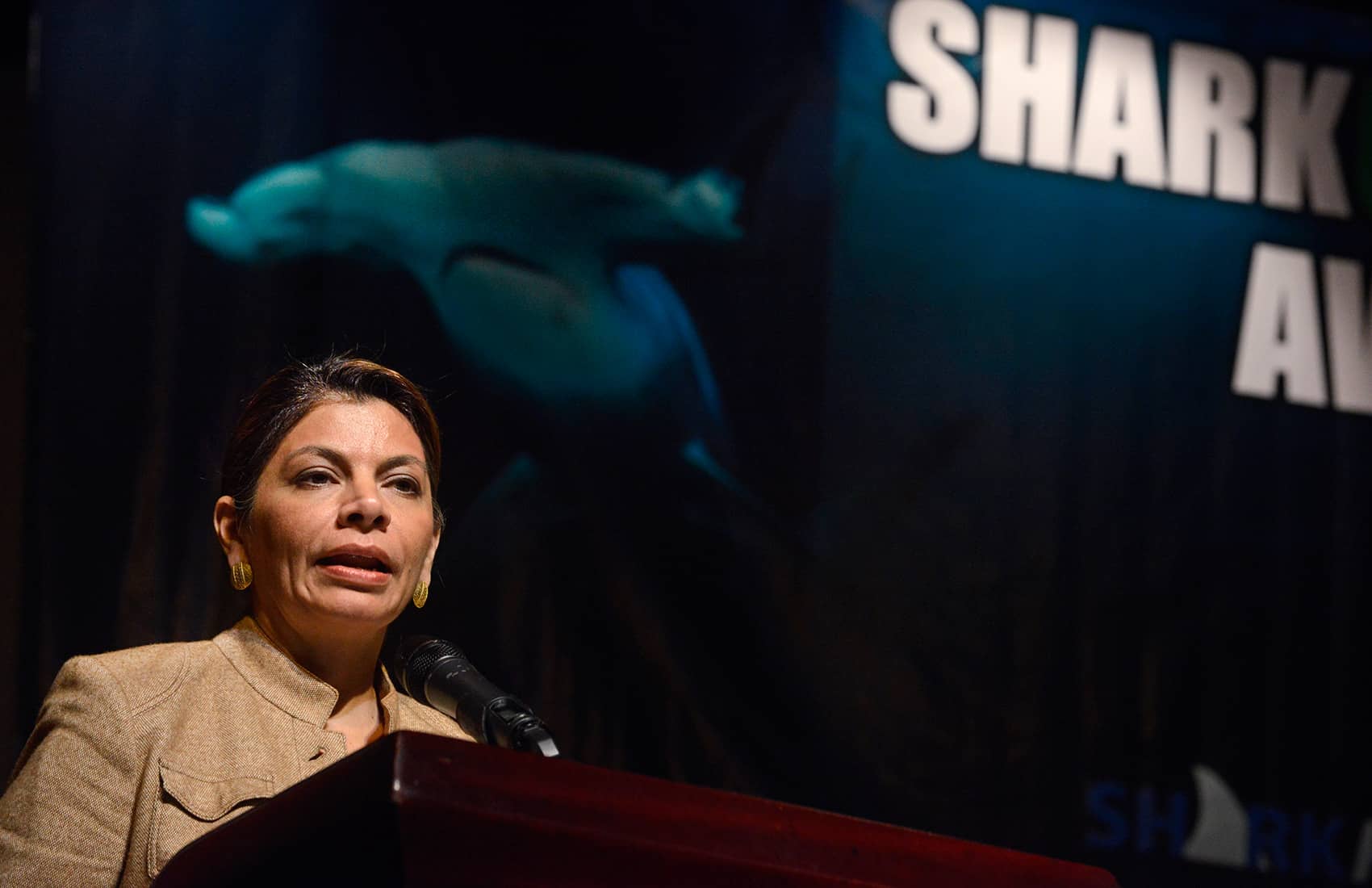In 2006, the private docks in the Pacific fishing hub of Puntarenas served as the clandestine headquarters for some of the world’s largest shark-finning operations. That year, German environmental group Sharkproject named Costa Rica’s then-president Abel Pacheco the “Shark Enemy of the Year.”
Today the docks are closed, and on Wednesday, Sharkproject gave out an award to another Costa Rican president, Laura Chinchilla. The organization called her “Shark Guardian of the Year.”
“We are at the starting point for worldwide change against the finning industry,” said Gerhart Wegner, Sharkproject’s president. “This all began here, in Costa Rica.”
For Costa Rica, it began with the rise in popularity of the Chinese delicacy shark fin soup at the end of the last century. Unable to meet the demand for fins in Asian waters, foreign fishing fleets turned to Costa Rica’s substantial shark population. Fishermen decimated the nation’s sharks, killing off more than 90 percent of some species and leaving coastal communities that relied on shark meat as a food source with nothing to fish.
While the prices of fins soared up to $700 a kilogram, shark meat remained inexpensive. To maximize the space in their holds, fishermen began hacking off the shark’s fins, tossing the still-breathing creature back into the sea, unable to swim.
“What we have here is an environmental crime, a social crime and an economic crime, performed in one of the most perverse ways ever before seen,” Environment Minister René Castro said at the ceremony.
Though Costa Rica first banned shark finning in 2001, the practice continued through loopholes and illegal operations at private docks. Despite court orders to close private docks to foreign ships in 2006, Chinchilla’s two immediate predecessors (Abel Pacheco and Óscar Arias) left them open.
In 2010, her first year as president, Chinchilla ordered all foreign fishing vessels to unload their cargo on public docks. Two years later, Chinchilla signed a blanket ban on shark finning and shark fin imports, further strengthening the country’s anti-finning law.
“We went through two presidents, two court resolutions, and Chinchilla was the one who got it done,” Randall Arauz, president of the Marine Sea Turtle Conservation Project (Pretoma), told The Tico Times. “She deserves this award.”
The Shark Guardian Award is Chinchilla’s second ocean policy award. In 2011 she also received a Peter Benchley Ocean Award for Excellence in National Ocean Administration.
This year’s Shark Enemy Award went to Colin Barnett, the premier of Western Australia, for the government’s new plans to hunt and kill sharks that swim close to popular beaches.
While environmental groups have been pleased with Chinchilla’s marine protection efforts, many believe that she could do more.
On Nov. 19 Chinchilla signed an executive decree establishing size and weight limits for sharks and manta rays caught for sale to go into effect in 2015. In his speech before presenting the award, Arauz applauded the decree, but because of the two-year grace period, accused Chinchilla of passing the buck to the next government.
“This new shark decree irresponsibly delegates the enforcement of shark management to the next government,” Arauz said. “We want this government to take responsibility and pass these reforms.”
In addition to moving up the decree’s deadline, Arauz encouraged the president to make changes the Costa Rican Fisheries Institute (Incopesca) before the end of her term in May.
With Costa Rica’s 2014 presidential race looming, the elimination or restructuring of Incopesca’s board of directors has become a common demand from environmental groups.
In her acceptance speech, Chinchilla addressed Arauz’s remarks saying that it “is not [her] style to kick the ball forward to the next government,” and later said that an Incopesca reform bill was currently in progress and should be presented in the next two months.
“We haven’t stopped working,” Chinchilla said. “We will keep working until the very last day.”






